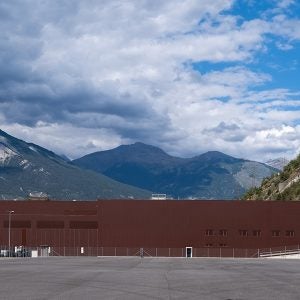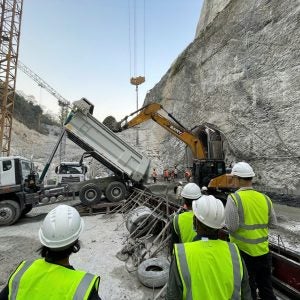
The Reventazón Hydropower Plant in Costa Rica has been named the winner of the 2019 IHA Blue Planet Prize, a prestigious award which recognises excellence in sustainable hydropower development.
Reventazón is the largest hydropower project in Central America with 305.5MW of installed capacity. Since it came into operation in 2016, the project has led Costa Rica to achieve a target of generating 100% of its electricity from renewable energy sources.
The IHA Blue Planet Prize is given to a hydropower project which demonstrates excellence across a range of social, environmental, technical and economic performance criteria. A judging panel awards the prize on the basis of an independent project assessment made using the Hydropower Sustainability Assessment Protocol, an internationally recognised performance measurement tool.
The prize announcement was made at the World Hydropower Congress in Paris at an awards ceremony held on 15 May 2019. The recipient is the Instituto Costarricense de Electricidad (ICE), Costa Rica’s national electricity company, which built, owns and operates Reventazón.
The project achieved proven best practice its management of communications and consultation, resettlement, public health, biodiversity and invasive species, and waste, noise and air quality, according to an assessment using the Hydropower Sustainability Assessment Protocol.
The hydropower plant is located on the Reventazón river in Limón province, 50km upstream of the Caribbean Sea. It was constructed between 2010 and 2016 and financed from a range of national and international organisations, including the Inter-American Development Bank and the International Finance Corporation of the World Bank Group.
The judges commended the project team for identifying opportunities to improve social and environmental management, developing educational processes for associated stakeholders, and implementing measures to compensate and mitigate impacts on aquatic habitats and endangered species.
Reventazón is one of the first hydroelectric projects in Latin America to use a river offset approach, in order to develop hydropower potential while avoiding development in other free-flowing rivers. It shows how hydropower projects can make a significant contribution to biodiversity conservation at regional and basin levels.
The assessment was conducted by a team of independent accredited assessors using the Hydropower Sustainability Assessment Protocol, with financial and technical support from the World Bank Group. This involved 90 interviews with relevant stakeholders and a review of over 470 related project documents.
More information about Reventazón and its assessment is available on www.hydrosustainability.org.






